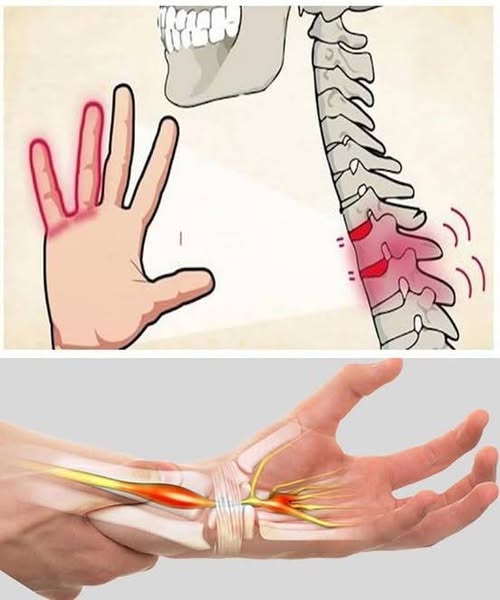Numb Hands: Is It Normal or a Sign of a Problem?
What Causes Hand Numbness?
Hand numbness can be a temporary sensation due to poor circulation or an underlying medical condition. It may feel like tingling, “pins and needles,” or complete loss of feeling in the hands and fingers. Sometimes, it is harmless, but in other cases, it could be a warning sign of nerve damage, circulation issues, or a more serious health condition.
1. Common Causes of Numb Hands
 Temporary & Harmless Causes:
Temporary & Harmless Causes:



 Medical Conditions That Cause Numb Hands:
Medical Conditions That Cause Numb Hands:

- A compressed median nerve in the wrist causes numbness, tingling, and weakness in the hands and fingers.
- Common in people who type, use tools, or perform repetitive hand movements.

- A nerve in the neck becomes compressed, causing numbness that radiates down the arm into the hand.
- Can be due to poor posture, herniated discs, or arthritis.

- High blood sugar can damage nerves, causing numbness, burning, or pain in the hands and feet.
- A serious condition that requires medical attention.

- Vitamin B12 deficiency can lead to nerve damage, causing numbness in the hands and feet.
- More common in vegetarians, older adults, or people with digestive issues.

- Blood vessels in the fingers narrow due to cold or stress, causing fingers to turn white or blue before going numb.

- A sudden, one-sided numbness in the hand could be a sign of a stroke.
- Seek emergency medical help if numbness is accompanied by facial drooping, slurred speech, or weakness in one arm.
2. Can You Treat Numb Hands at Home?


- Avoid putting pressure on your wrist or sleeping with your arm under your head.
- Try a wrist splint at night if you have carpal tunnel syndrome.

- Wrist stretches and finger exercises can improve circulation and relieve pressure on nerves.
- Rotate your wrists and stretch your fingers throughout the day.

- Use a warm compress to increase blood flow if the numbness is due to poor circulation.
- Use an ice pack to reduce swelling if the numbness is from inflammation or carpal tunnel syndrome.

- Adjust your keyboard, mouse, or work setup to prevent wrist strain.
- Take frequent breaks if you work on a computer or do repetitive tasks.

- Gentle massage can improve circulation and relieve nerve pressure.
- Move your hands and fingers to restore feeling.

- Eat more eggs, fish, meat, dairy, and fortified cereals to prevent nerve damage.
- Consider a B12 supplement if you are at risk for deficiency.
3. When Should You See a Doctor?

- Sudden numbness in one hand with weakness in the arm or face (possible stroke).
- Numbness lasting more than a few hours without improvement.
- Severe pain, swelling, or loss of hand function.
- Numbness that spreads to other body parts or happens frequently.
Medical Treatments May Include:



If you experience numb hands occasionally due to temporary factors like sleeping posture or cold weather, it’s not a big concern. However, if numbness persists, worsens, or is accompanied by other symptoms, you should consult a doctor to rule out serious conditions like nerve damage, diabetes, or stroke.
Taking preventive measures like stretching, improving posture, and eating a healthy diet can help reduce numbness and keep your hands functioning properly!




